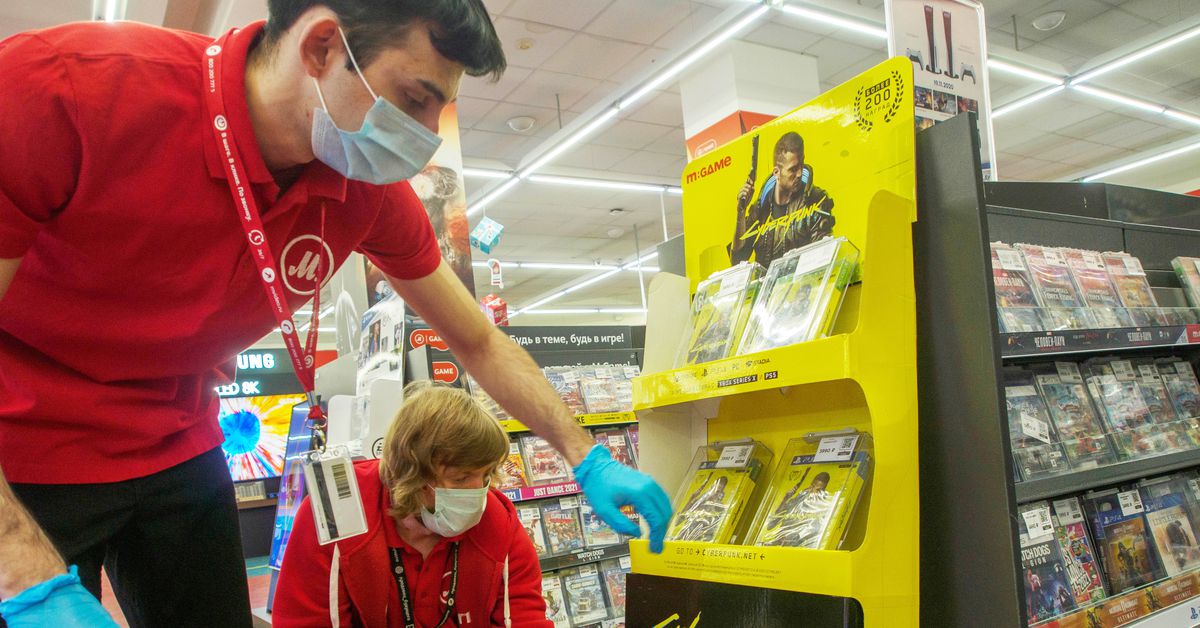
A cold financial calculation would characterize this year as a massive success, but it was much more than just numbers
This year was bad, in so many different ways. It began with Australia on fire and continued with more global strife: a pandemic that’s caused mass death and an economic crisis, all of which has disproportionately impacted marginalized people. When large swaths of the world faced an unprecedented virus spreading, they were forced to spend more time at home, under government-mandated lockdowns, while essential workers took care of everyone’s needs.
People had nowhere else to go, so they headed into virtual worlds and stayed there. When Animal Crossing: New Horizons came out in March, just as the pandemic lockdowns began in the United States, the game didn’t just feel like a luxury. It met a need. Nintendo sold more than 13.4 million copies in the first six weeks after New Horizons’ release. The boom caused shortages on consoles and equipment, too. It became almost impossible to find a Nintendo Switch at the start of the pandemic — same with its exercise video game, Ring Fit Adventure. People who may not have owned a console in the past began to purchase them. Nintendo of America president Doug Bowser told Viaggio247 in a recent interview that “more women gamers [came] into Nintendo Switch platforms, women that had not owned a Nintendo Switch platform in the past” during 2020.
The human impact of video games was also clear this year. These virtual worlds became essential spaces for people to connect or express themselves in ways they might not have otherwise. The industry’s growth was unprecedented during this time; a cold financial calculation would characterize this as a massive success. But the people making video games have been facing the same global crisis as the rest of us. It wasn’t always easy for them.
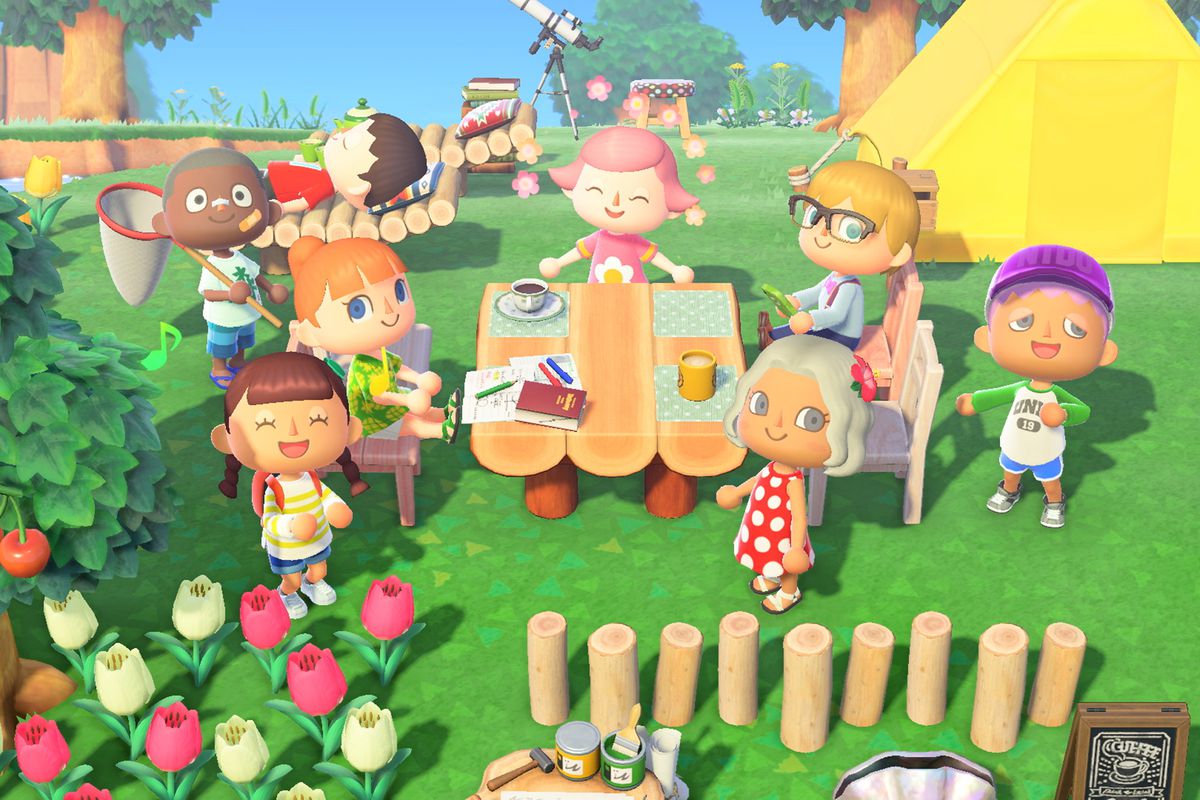
Image: Nintendo EPD/Nintendo
Video game studios operated under very different working conditions, with companies around the world transitioning to work-from-home. The impact of 2020’s events on the industry also meant delays of high-profile projects, like CD Projekt Red’s Cyberpunk 2077 or Naughty Dog’s The Last of Us Part 2, both of which were also reportedly made under crunch conditions. Meanwhile, other studios reportedly rejected this style of development, such as the team on Supergiant Games’ Hades.
A light shone on some of the worst parts of the industry this past year. People previously silenced felt comfortable speaking out about racist and sexist workplaces while the country as a whole reckoned with its racist history of police brutality. Big companies, like Ubisoft and Activision, put out statements promising change and supporting Black Lives Matter, but the industry still has much more to do in bettering the space for its marginalized workers.
A lot of this has been invisible to the players who have relied on these video game worlds, though that’s changing, too. While 2020 was a challenge, games industry workers have been speaking out more and more this year — there’s been more talk of unions and actions toward fair working conditions, as developers made the space to enact change in their industry.
A year without conventions
PAX East in Boston was the last large-scale, in-person video game event held in 2020. It took place in February, just as concerns about the pandemic began to grow in the U.S. Sony Interactive Entertainment, expected to show The Last of Us Part 2 there, was one of the few companies to drop out of the event, citing COVID-19 concerns. Outside the U.S., other events had already been canceled, like League of Legends, Overwatch, and Counter-Strike: Global Offensive esports matches in China.
“It took several weeks before the reality of the year truly set in for our team”
Shortly after PAX East, those cancellations began to hit U.S.-based video game events, too. The largest and most rattling were the Game Developers Conference in March and the Electronic Entertainment Expo in June.
A yearly meeting of game developers from across the globe, GDC has become an important place for independent studios and developers to network with one another and showcase their games — whether it’s within the conference or outside on the lawn in front of the event. Major companies pulled out of the show first, but the real impact of GDC’s cancellation was on small studios and independent developers. These game makers faced grave financial burdens over cancellations.
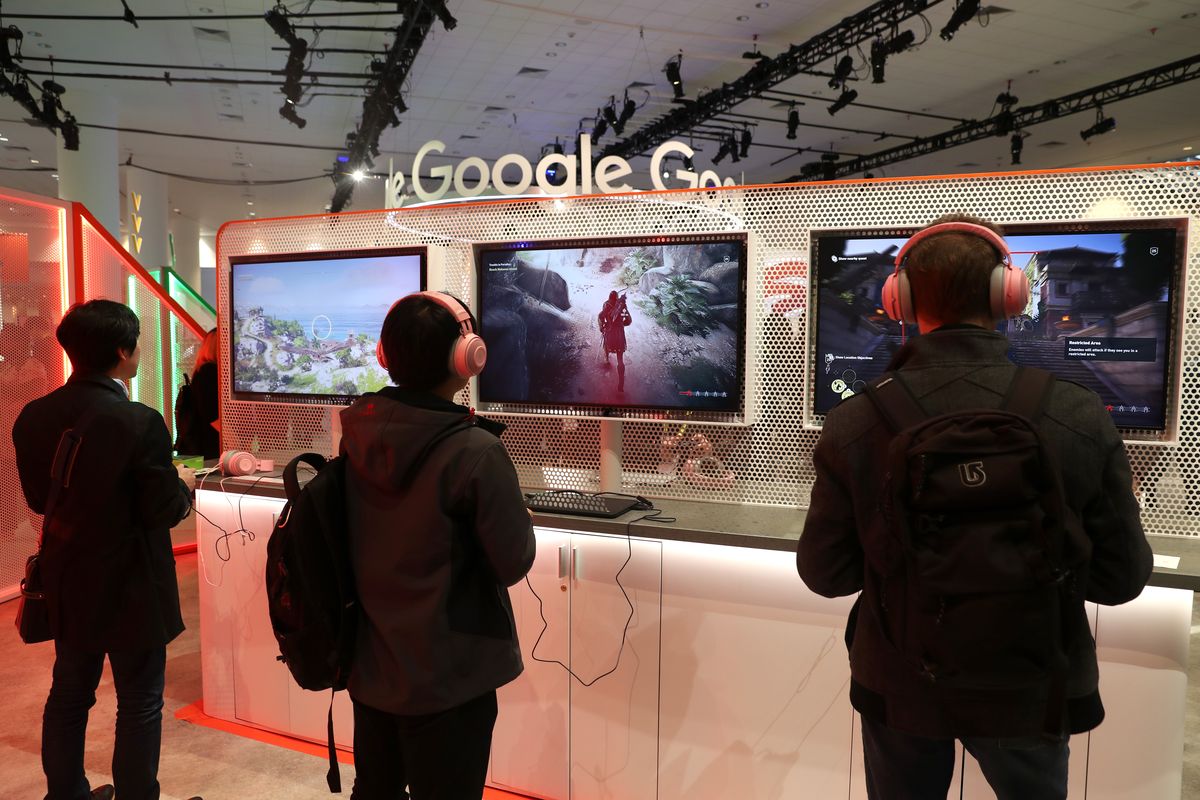
Photo: Justin Sullivan/Getty Images
“I remember the day that everything changed very well, because we had been preparing for GDC all through January and February,” Ethan Stearns, the executive vice president of indie publisher MWM Interactive, told Viaggio247. “Being a new publisher, we were planning to use GDC as a way to introduce ourselves to the rest of the game industry.
“On March 13, it all came to a stop,” Stearns continued. “We had to cancel everything. Cancel travel for all our developers and start to move our team into a remote working environment. It took several weeks before the reality of the year truly set in for our team.”
The good news, though, was that in the face of this, independent developers came together to set up the GDC Relief Fund — created by Wings Interactive and gamedev.world — to help developers affected by the crisis. More than 175 developers were able to “recoup large portions of their losses, and in turn ensure the continuation of countless exciting projects,” according to the GDC Relief Fund website.
Without the summer’s two major press events, announcements were spread across the months of the season, with one-off publisher showcases. This might as well have killed off E3 as a banner event — publishers realized they didn’t need the show after all.
The Black Lives Matter movement
On May 25, Minneapolis police killed George Floyd, an unarmed Black man. One of the officers, Derek Chauvin, has been charged with second degree murder and manslaughter, while the other three officers face lesser charges. Floyd’s death, as well as the deaths of other Black people at the hands of police, like Breonna Taylor, sparked a series of protests across the country.
People took to the streets and public squares to demand that the U.S. reckon with its racist history. Though the protests began in the streets, they spread into the virtual realm, spilling over into the world of Animal Crossing: New Horizons and others. Video game studios and publishers released statements and made social media posts in solidarity with the Black Lives Matter movement, with companies like Activision adding a Black Lives Matter message to video game loading screens. In Fortnite, Epic Games hosted a discussion about race, led by author and political commentator Van Jones, with guests like Jemele Hill, Elaine Welteroth, and Killer Mike. Similarly, Rockstar Games, 2K Games, and parent company Take-Two Interactive briefly shut down the servers for Grand Theft Auto Online, Red Dead Online, and NBA 2K to “honor the legacy of George Floyd.”
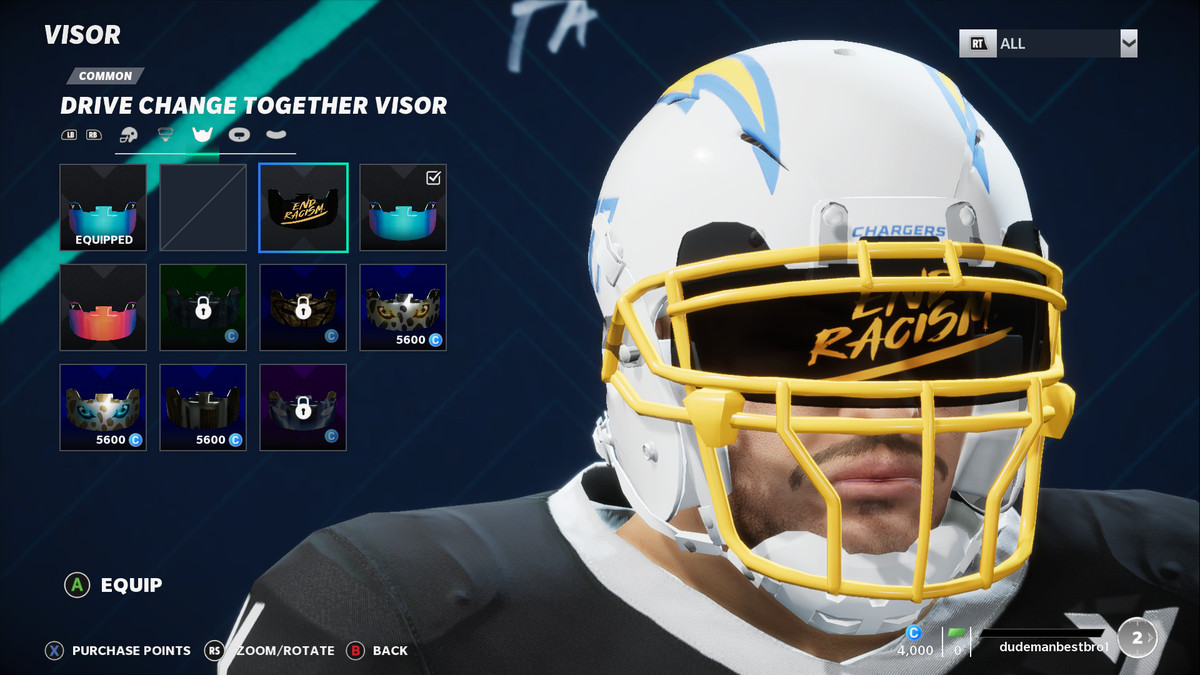
Image: EA Tiburon/EA Sports via Viaggio247
Some companies made more tangible promises, pledging to donate to criminal justice reform and racial equality organizations. Niantic, the Pokémon Go developer, committed to donating at least $5 million to fund projects from Black developers. It also said it would develop a diversity and inclusion program to better serve its BIPOC employees and improve its hiring and mentorship practices.
However, it was a community initiative that outshone Black Lives Matter promises by larger companies. Indie developers from around the industry committed to listing their games in a charitable bundle — the Bundle for Racial Justice and Equality. A total of 1,391 creators added their games and projects to the bundle, raising more than $8 million for the Community Bail Fund and the NAACP Legal Defense and Educational Fund.
Taking work home
“The industry in general has a mentality that in-person collaboration is key to making memorable experiences,” Cat Daddy Games executive producer Jon Sieker told Viaggio247. When companies began closing their offices at the start of the pandemic in March, employees had to shift how they worked. Most companies adopted work-from-home policies that required all staffers to move their workspaces — equipment included — into their homes.
“The Sims team started working from home exclusively in March,” The Sims 4 executive producer Lyndsay Pearson told Viaggio247. “We scrambled to get everything set up as best we could, tried to help folks find equipment, and EA was very supportive of adjusting to our new working conditions. This year felt different in so many ways — solving creative problems remotely is a totally different beast. Who knew how much we’d miss having whiteboards all over the place?”
The Sims 4’s 10th expansion pack, Snowy Escape, was developed entirely during the pandemic lockdowns, with all employees working from home.
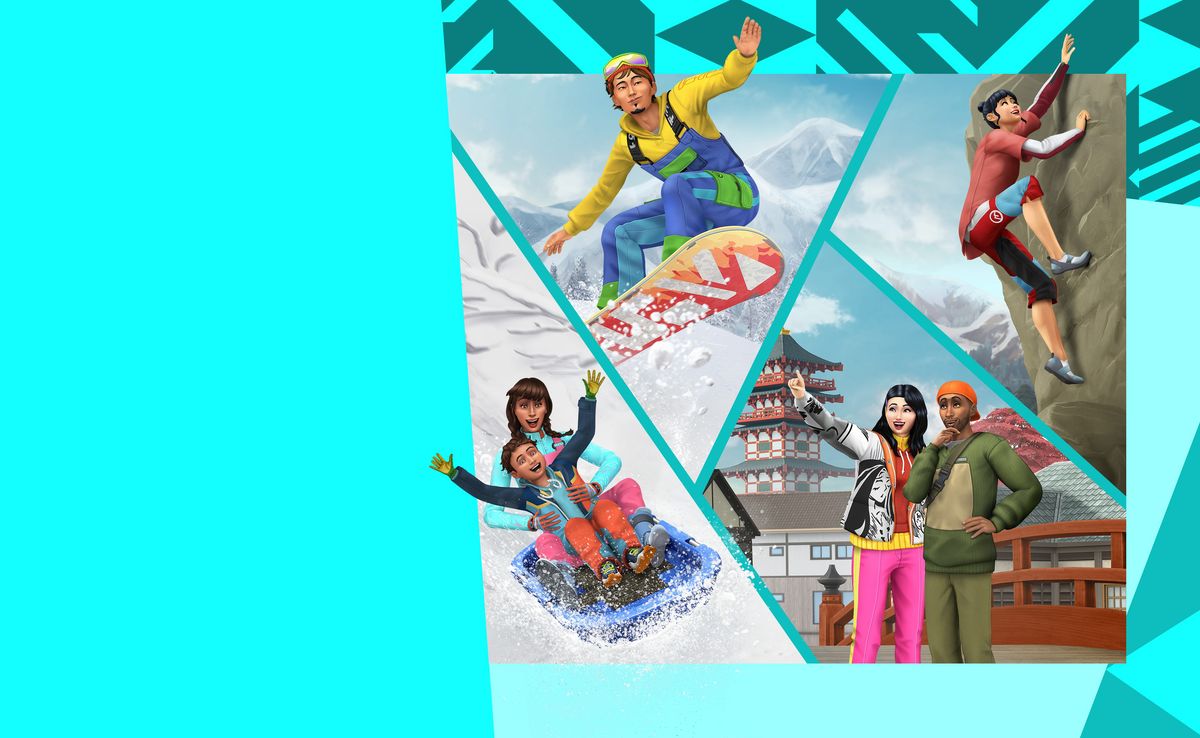
Image: Maxis/Electronic Arts
“It was slower than we thought, harder than we thought, and we had to define entirely new ways of working, but I’m extremely proud and impressed of the teams’ ability to craft immersive, meaningful, entirely new experiences from our homes,” Pearson added.
The challenges in working during the pandemic are abundant — shifting child care duties, the stress that comes with experiencing the horror of what’s going on in the world, the widespread economic downturn. Amanda Bonacorso, a producer on Firaxis Games’ Sid Meier’s Civilization 6, said developers there had to learn patience during this time: “Patience with teammates who might have a slightly different schedule to family or preference, and patience with waiting for answers.”
Fans, too, had to learn patience as games got delayed — with many teams specifically citing the coronavirus pandemic. Ubisoft delayed Far Cry 6 and Rainbow Six Quarantine. Sony Interactive Entertainment pushed The Last of Us Part 2 further back into the year, and CD Projekt delayed Cyberpunk 2077 multiple times. (The game was ultimately released in December, and it’s had some problems.)
Some of the developers we spoke to said that despite the challenges of working from home, continuing to make video games ultimately provided a sense of stability.
“Making games and continuing our work on The Walking Dead: Saints & Sinners has been the most normal part of the whole experience of 2020,” Skydance Interactive head Chris Busse told Viaggio247.
Still, it felt different for others: “The mood is different,” Munduan developer Michel Ziegler said. “As a game developer completely obsessed with a project, I feel kind of in my own world in normal times already. But the pandemic made everything even smaller and more like in a vacuum.”
Virtual worlds stayed open
Over the course of 2020, video games became ubiquitous; people retreated back into their homes and took to virtual worlds, both as a distraction and as a salve for the real-life pain that continued to grow over the year. Of course, it wasn’t all idyllic escapism — people used video game spaces to create change and protest injustice in ways that may have felt inaccessible during the lockdown periods. Video games let people safely participate in the other activities they weren’t able to do during the pandemic, whether that was trick-or-treating in Animal Crossing: New Horizons or watching live theater in The Sims 4.
2020 was always going to be a year that the video game industry remembered
Animal Crossing: New Horizons was the mainstream standout for video game players, with the allure of perfectly crafting an island allowing people to maintain some normalcy in performing everyday tasks in the game. But plenty of other games became meeting spaces for people. In Fallout 76, there was new content (like the Wastelanders expansion) that added more ways for players to interact with the world, like nonplayable characters with new quests and storylines. Fallout 76 project lead Jeff Gardiner said the team felt even more committed to making the game more “community-friendly,” especially during the pandemic.
Other games, like The Elder Scrolls Online, saw an increase in both players and playing time, which Matt Firor, studio director at developer ZeniMax Online Studios, attributes both to the pandemic and the addition of new Skyrim content.
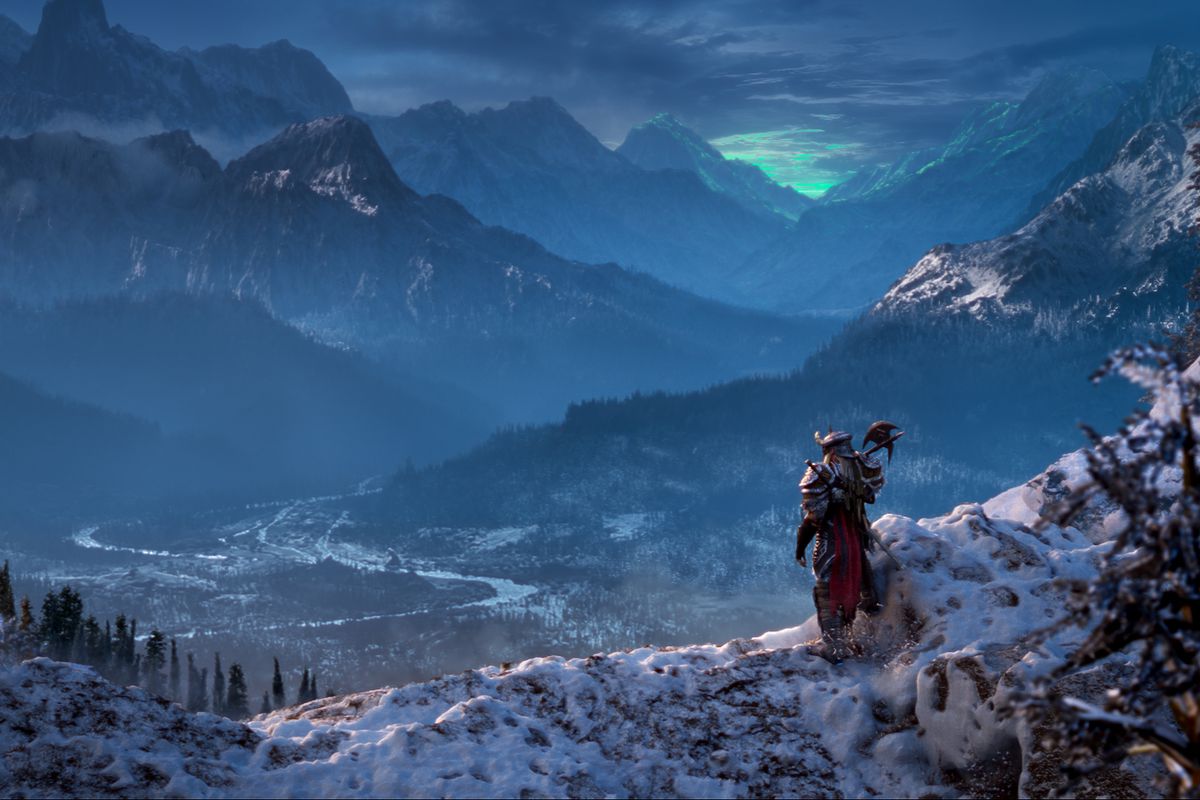
Image: ZeniMax Online Studios/Bethesda Softworks
Many of the developers that Viaggio247 spoke to understood how much players had come to rely on their games.
“For our team to be able to continue to work on something they love, for an audience they adore, has really put it into perspective just how lucky we are to do what we do,” PGA Tour 2K21 creative director Josh Muise said. “Knowing that our game could help people escape some of the stress from the past number of months drives us to deliver the best experience we can. We appreciate each and every person who takes the time to play our games.”
Like Viaggio247’s Chris Plante wrote earlier this month, 2020 didn’t make games “normal,” because they already were. A ton of people already played video games. But this year did make games essential — for people who already played, and for those who didn’t.
2020 was always going to be a year that the video game industry remembered; the new console releases from Sony and Microsoft were already highly anticipated. But the excitement for something — in this case, the promise of a new console — in the midst of so much devastating loss was also important for people. The PlayStation 5 and Xbox Series X sold out near-instantly, something that probably would have happened in any other year, too. But even that experience was different, with a console launch that looked unlike any others, due in part to how lockdowns prevented hordes of people from gathering.
Video games made so many things more accessible this year, whether that was a birthday party, art and theater, or a protest. Yet games and the industry are still inaccessible for a lot of reasons — whether that’s the price of entry that keeps players away, or unfair labor practices that make talented people burn out. But in 2020, the industry started down the road of improvement in both areas. The success of the video game industry in 2020 is bittersweet. But it has been hard-fought.
